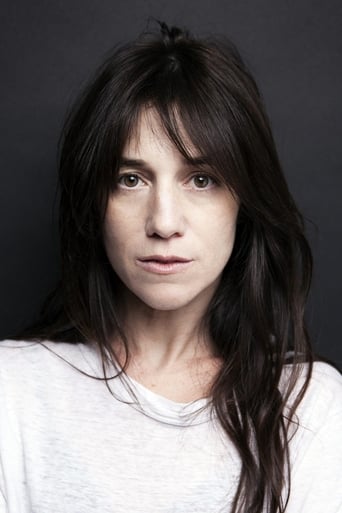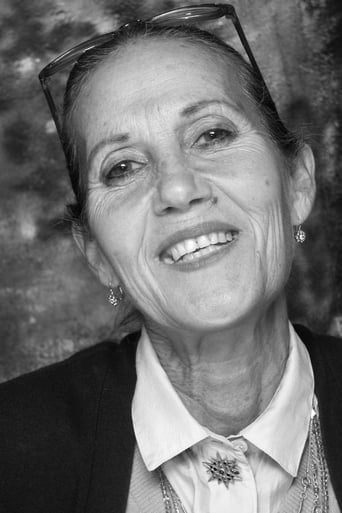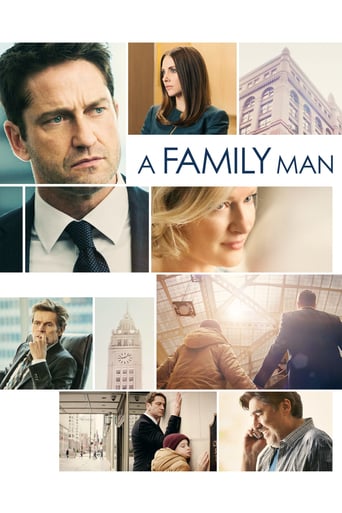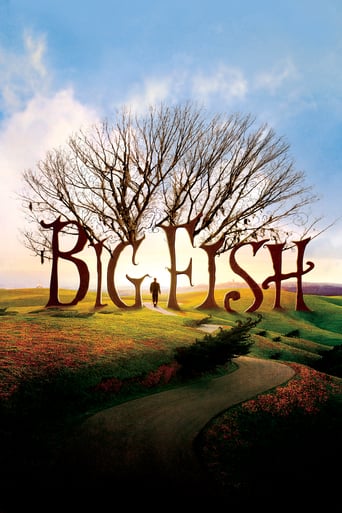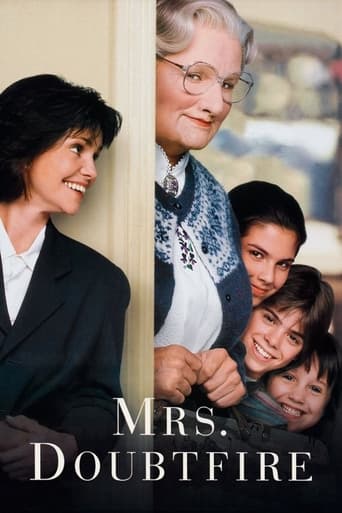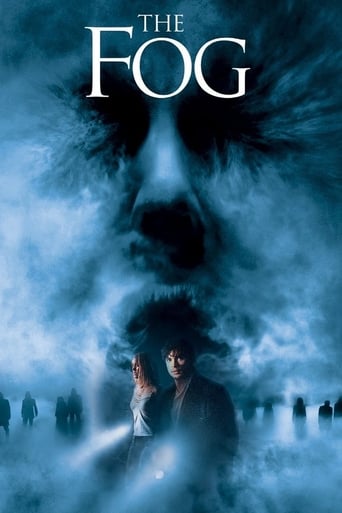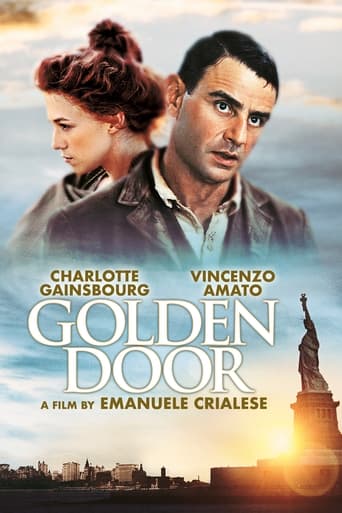
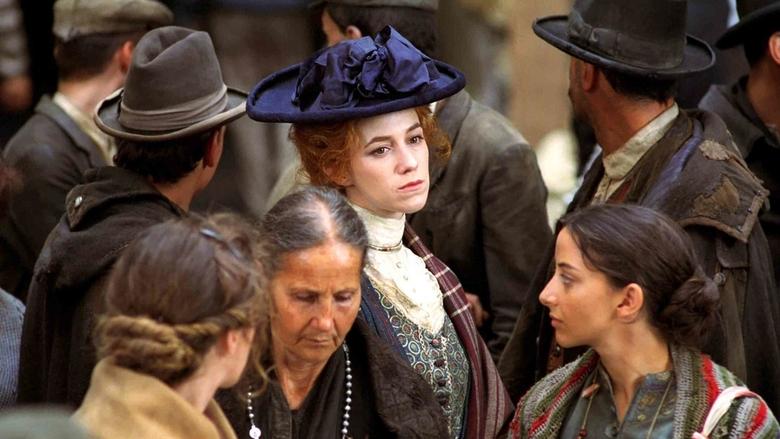
Golden Door (2007)
The story is set at the beginning of the 20th century in Sicily. Salvatore, a very poor farmer, and a widower, decides to emigrate to the US with all his family, including his old mother. Before they embark, they meet Lucy. She is supposed to be a British lady and wants to come back to the States. Lucy, or Luce as Salvatore calls her, for unknown reasons wants to marry someone before to arrive to Ellis Island in New York. Salvatore accepts the proposal. Once they arrive in Ellis Island they spend the quarantine period trying to pass the examinations to be admitted to the States. Tests are not so simple for poor farmers coming from Sicily. Their destiny is in the hands of the custom officers.
Watch Trailer
Cast


Similar titles
Reviews
I suppose the 'Golden Door' of the title of this film is that small patch of water just in-front of; level with and partly yonder The Statue of Liberty in New York. It's that small, minute space in which Europeans know they're about to enter the nation of the United States of America and begin a new life. Or are they? The film is all about those little moments in life; those instances in which you have to take a minute to breath and recognise that things are, indeed, about to change rather drastically: the leaving of the Italian port to the sound of a deafening foghorn; that first meeting with a potential suitor, while remembering where you were and how you felt as well as the very first glimpses of America as you huddle around widows in immigration halls.Remember that very short but rather upsetting passage of cinema in the second Godfather film during which a ten or so year old Vito Corleone arrived in America from Italy and couldn't catch a break at immigration control? I always found that tiny segment quite upsetting, and wanted the film to revolve around young Vito's troubles at that locale a little more. The Golden Door uses that setting, indeed that scenario, as its rousing finale. The film builds to that concentrated moment during which the characters have come so far but cannot get over the line; that moment when all they believed was actually challenged by the reality of the situation.Ultimately, the film is about what individual characters think, feel and believe rather than immigration from Europe to America back-in-the-day. There is a certain degree of anxiety and conflict right near the end when it transpires certain characters' beliefs are challenged by these formal, suit wearing officials in the immigration office; housed within the 'new' world. There doesn't seem to be any room for those deemed 'different' to everyone else; no room for the shaggy dressed, elderly women who has been brought up for the last several decades on specific thoughts and spiritual practises.The film follows a poor, rural family by name of Mancuso whom live on the island of Sicily, just off the coast of Italy. The lead is named Salvatore (Amato); the head of a household whom head for Ellis Island with many others seeking a new life at the turn of the 20th Century. The first time we see Salvatore, he is partaking in what the film is essentially about: beliefs. He, as is an acquaintance, are carrying rocks in their bloodied mouths before laying them down somewhere specific and saying a prayer. What follows is a very bizarre and ritualistic scene involving an elderly spiritual woman and a much younger woman, with the elderly woman attempting to extract a supposed wriggling sensation from the younger one's belly. Again, these are spiritual and somewhat classical beliefs engaged in by those living on the notion they are true to life and work.The Golden Door is essential split into three different segments. The first is set in rural Italy and covers poor, backward even, people carrying out ideas and getting by. The beliefs are ancient and very spiritual; the people omit feelings of desperation and dream of lots of food, milk and money. The second third involves a developing of these emotions; an ingredient of lust as pretty British woman Lucy (Gainsbourg) becomes the clear object of a lot of male passenger's gaze as she strolls around the large boat transporting everyone to the new world. There is a certain hopefulness as the new land draws nearer; a certain anticipation as paradise is supposedly weeks away. This is additionally captured by the tiny narrative that opens up to do with Lucy searching for a husband and that, after meeting Salvatore, she is hopeful he will be the one, even if the right 'time' has not arrived where she can say she loves him. It is a poignant parallel in regards to the characters' overall predicament whilst waiting for this new world.The final third pushes the ideas to the forefront of questioning and examination, nicely captured by actual examinations on human beings by other human beings. The clashing of the old and new; the classical and the modern and of the science and the spiritual is just as awkward as it is humbling as it is fascinating. The film certainly carries that slow-burning and epic feel, punctuated by minute branches off into surrealist realms of fantasies and impossibilities. It does well with what it has at its disposal, namely scenes on the deck of the ship and the sense that this huge boat is casting off; soon to be midway across the Atlantic, when really, it's a series of rather small-ish sets.The Golden Door must cover several thousand miles or so over a span of several months but it never really feels like it. Whether that should count as a criticism or not, I'm not actually sure. The film is more a study of the smaller, more concentrated occurrences and emotions felt by people; the fact it just happens to play out amidst a several thousand mile journey on a massive ship is a mere coincidence. The film is brave; brave for the filmmakers to take on something so grand for a study so much more fitted to smaller scales.
"Nuovomondo (2006)" (shown in the U.S. as "The Golden Door") was written and directed by Emanuele Crialese. This film is different--and, I think, better--than most movies about impoverished people who leave Europe and come to the United States.The film begins with scenes in a poor, rural region of Sicily. We always hear that Sicily is a rocky island, but you won't really understand the implications of that phrase until you see the first half-hour of "The Golden Door." The middle section of the film is devoted to the long voyage to the U.S. Most immigration films show us ten minutes of people in the third-class section becoming seasick, and then show us the Statue of Liberty. Not this movie--we get a sense for life below decks, and it isn't charming. (We never actually see the Statue of Liberty, either.) Finally, the typical movie will give us another ten minutes of Ellis Island, and then the immigrants are walking through New York's Lower East Side. Not here--the Ellis Island experience occupies about one-third of the footage. Vincenzo Amato is outstanding as Salvatore Mancuso, who is bringing his two sons and his mother to the new world. Charlotte Gainsbourg is equally good as Lucy Reed, a mysterious Englishwoman who also speaks fluent Italian.There are some strange touches in the movie, especially the sound track with songs by Nina Simone. There must be some symbolism there, but I couldn't make sense of it.Another reviewer has already pointed out that this film will do better viewed in a theater rather than on DVD. Still, large screen or small screen, it's worth seeking out.
So now I have a very good idea what my immigrant grandparents went through traveling by boat from Italy and through Ellis Island aka "Golden Door" in the early part of the twentieth century. Emanuel Crialese's Golden Door amply describes the primitive living circumstances that motivate these adventurers to leave home, the cramped weeks aboard a steamer, and the indignities. In fact, the director is so precise that most of the tale lumbers through the details of living and then processing at the island to the detriment of engaging story telling.The only relief from the boredom (like the voyage) is the occasional Fellini-like impressionism: One prominently has characters swimming in milk (as in the "land of milk and honey") more than once. It could be argued that the director doesn't prepare the audience for the abrupt transitions into the formalist episodes, but I felt relief with them.By contrast Mira Nair's recent Namesake is superior in telling an interesting story about identity and the new world, and Chaplin's Immigrant (1917) makes the boat ride a model of slapstick and the restaurant scene not only humorous but telling about the challenges immigrants inevitably face. Nobody ever said Chaplin was boring.Charlotte Gainsbourg stands out as Lucy, a husband-seeking Brit whose literate background makes her useful, and whose role as a strong, beautiful woman allows the film to explore the prejudices against women. She is unforgettable when she and other women sit in a room awaiting the magistrate's permission to marry a man often the woman is meeting for the first time. That a woman would need a man to qualify for entry into America may not be so anachronistic given Hilary needing Bill to make her political career in the twenty first century.Agnes Godard's cinematography is often the salvation of a scene, for instance when she catches two mountain climbers with rocks in their mouths deftly negotiating a rock-strewn hill top to arrive at a shrine. Mostly she photographs the climbers close up to keep the adventurous sense of surprise. Then she reduces them to just more rubble as she pulls back into a major bird's eye view losing them slowly just as their journey across the Atlantic will reduce them again.It's a slow journey.
The Golden Door is the story of the Mancuso family's journey to America at the turn of the last century. The movie can be thought of in three distinct segments: the life the immigrants left behind in "the old country," the Atlantic passage to America, and the processing through Ellis Island.The opening scenes, although they take place a mere 100 or so years ago, conjure up the Dark Ages. For all the superstition, illiteracy and darkness that pervaded peasant life in Italy at that time, it might very well have been that era.Once the family decides to depart (only after receiving a "sign" from a saint to whom the patriarch prays), the horrendous conditions in steerage make it hard to imagine that these poor souls took on this voyage voluntarily. But they went. They went seeking out a life in a new land where money grows on trees and rivers run with milk (two of the more surreal themes in the movie).The processing on Ellis Island which could end in forced return to the old country included every kind of indignity, including communal showers, medical exams en massed, intelligence testing that today would be denounced as "culturally biased," and brokered engagements held in an almost auction-like public setting. When it is inquired why all this is necessary, it is pronounced that America does not want the taint of inferior people.Running as a subplot to the story of the Mancuso family is the story of Salvatore Mancuso and Lucy Reed, an English gentlewoman on board the ship who proposes to him as a means of gaining her admission to America where sponsorship is required of immigrant women. Although she claims that this will be nothing more than a marriage of convenience (and "not for love"), her eyes tell a different story, whereas Salvatore is clearly smitten with her.This is a gritty and richly detailed movie. One scene where an elderly grandmother holds her grandson's hands in hers focuses on the dirt embedded under their finger nails.The soundtrack is great, although not appropriate to time or place, alternating between too modern (the music playing over the credits) and more Middle Eastern-sounding than Italian (the folk music played by the immigrants while on board ship).To witness the hardships that our forebears forbore to pass through "the golden door" is to be jolted out of our American complacency and to appreciate what they endured to pave the way for the lives we enjoy today.Laura L.


